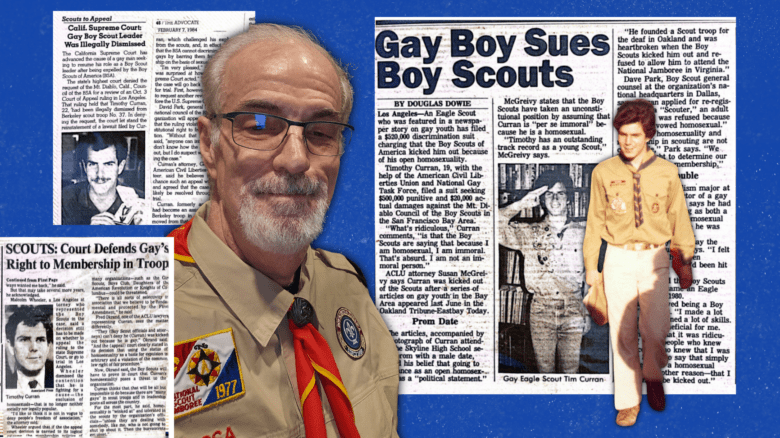One important thing to know about Roz Kaveney is that she’s a great interview. Some people are good interviews; Kaveney is a great one. Ask her one question—in my case: “How did you grow up?”—and you end up with a story that involves Kathy Acker, Rachel Pollack, Germaine Greer, forming an unexpected “alliance” with Andrea Dworkin on live television and dirt on several important figures in the British publishing world, with basically every line of that story being pre-polished, witty and ready to serve as a snappy pull quote.
The other important thing to know about Kaveney is that there are dozens of other important things to know about her. Her debut novel, Tiny Pieces of Skull—which she initially wrote in the mid-1980s, when there was no such genre as “trans fiction”—won the Lambda Literary Award for Best Trans Fiction when it was finally published in 2016. She has produced a greatly admired translation of the works of Catullus. She is a poet: her 2012 debut, Dialectic of the Flesh, was shortlisted for the Lambda and her most recent collection, The Great Good Time, came out last year. This year, she published Revelations, the conclusion of her five-volume fantasy epic series, Rhapsody of Blood.
Kaveney is now 74 years old; by her own reckoning, her writing career only became her main focus when she was about fifty. For the first half of her life, she’d primarily been known as an activist. She fought the Sex Wars as part of Chain Reaction, a groundbreaking lesbian feminist BDSM club portrayed in the 2021 documentary Rebel Dykes, then founded the organization Feminists Against Censorship and served as deputy chair of the U.K.’s National Council for Civil Liberties (referred to, informally, as “Liberty”) for several years in the ‘90s. She is the last living trans woman who was within the Trans Group of the London Gay Liberation Front.
Kaveney is a working writer, not a historical figure; she lives her life very much in the present tense. “I don’t mind talking about my activism,” she says, “but I think my poetry is more important.”
I did want to talk about her activism, though. One of Kaveney’s more impressive accomplishments is that she has spent almost 50 years actively fighting the British TERF movement, and, in the course of that fight, has borne witness to nearly its entire history. She saw it take form. She saw it rise. She may yet see it fall.
Roz Kaveney was, by her own account, a “horribly precocious teenager.” She was born in West London. Her father, a prison guard, got a promotion when she was 13 and moved the family to Wakefield in Yorkshire. She was fast-tracked for her exams—the equivalent of skipping a grade for North Americans—and wound up being, not only the new kid in school, but a new kid who was on average a year and a quarter younger than the rest of her class.
“I also had a slightly posh Southern accent, because I was at a slightly posh school in London,” she tells me. “And that made me a target for massive amounts of bullying.”
So, she read. A lot. In multiple languages: “I was reading a lot of French just to annoy my French teacher,” she says. “I had a feud with one of my French teachers, and so I’d try and get ahead of him on lessons and sabotage him.”
She also spent weekends hitchhiking into Manchester, where, for the first time, she met other trans women. Kaveney told her childhood best friend about her gender when she was only five. That friend found her, decades later, by looking for trans women with the last name “Kaveney”—but it was only in the late 1960s, with the Manchester group she calls “street women,” when she made any real contact with trans life.
“It was great, but they were very responsible and discouraged me from running away from home and starting to transition in my teens,” Kaveney says. “They said, ‘Your life will be much better if you go to university, and you’ve got years to sort things out.’ And about that time, when I was in Manchester, I got picked up by a police car and correctively raped by a cop who explained to me that he was doing this to demonstrate what my life was going to be like if I persisted in these courses.”
Kaveney was admitted to Oxford University; she cut Manchester mostly out of her life, though she would still take trips there, “just when I couldn’t cope.” She made it through her master’s degree, though she says she was “unlucky” in her thesis topic—someone else who had been working on the same topic published their research just before she was finished—and didn’t get her PhD.
In conversation, Kaveney tends to walk past the difficult parts of her story at a brisk clip. She refers to her assault as “a bit of a trauma.” She mentioned leaving Oxford once. What she did not mention to me, but has mentioned to other interviewers, was that she had begun to transition the year before she left. “The kind of education that she had, the kind of expectations that she had, were hugely confounded by transitioning,” says her friend and colleague Lisa Power, who authored an oral history of the Gay Liberation Front (GLF). “You know, she was on her way to a massively successful academic career, and it all got upended. And she’s very funny about it now. But actually, that must have been quite horrific.”
Kaveney spent a few years taking different jobs—civil servant, TV script reader, publishers’ reader—until she found her way back to London. She was politically active, and became close friends with Rachel Pollack, who worked with her on the 1972 GLF manifesto “Don’t Call Me Mister You Fucking Beast.” But, in the mid-1970s, she detransitioned on the advice of cis feminist friends. It wasn’t until 1978 or 1979 that she transitioned for keeps. That’s when she found Chain Reaction and the lesbian BDSM scene. That’s also when the TERF movement found her.
One night, in the late 1980s, a group of women in ski masks showed up at the door of Chain Reaction. They stormed the club, knocked over furniture, smashed everything they could reach with crowbars and shoved and hit any women who got in their way. These women were radical feminists, at least in their own estimation, and they believed Chain Reaction endorsed “violence against women” by allowing women to do consensual BDSM and have sex with each other on the premises.
“Sex Wars” has come to feel like an academic term. It’s passed into history as a bunch of feminists in the ‘80s being jerks to each other, which—since feminists are jerks to each other in every decade—is not surprising. But they were called “wars” because they were warlike. People fought each other, sometimes physically. People got hurt.
The anti-sex feminists argued that any sex other than “pure” lesbian sex between two equal and more or less identical partners, neither of them presenting as masc or femme or expressing any desire that could potentially be construed as “straight”—that is to say; any sex that included penetration, or power dynamics, or butches, or femmes, or men, or penises, or vibrators, or or or—was being violently imposed on women by the patriarchy, whether or not any men were present, and whether or not the women consented to or enjoyed it. Manifestos of the time alleged that “any woman who takes part in a heterosexual couple helps to shore up male supremacy by making its foundations stronger.” Housewives were collaborators, and consent was false consciousness. “Why are you here? Why does this turn you on? IS THERE A MAN IN YOUR HEAD?” reads one flyer directed at the Chain Reaction members, captured in the Rebel Dykes documentary.
In the 2020s, when basically anyone with a smartphone or laptop can access an endless stream of pornography, the idea that anyone can legislate sexual desire on this level seems ridiculous. In the immediate aftermath of the Sexual Revolution, when human sexuality—and particularly women’s sexuality—was still shrouded in mystery, it may have seemed less so. Power recalls leading a sex-ed session at the Lesbian & Gay Switchboard, an LGBT+ helpline started in 1974, so that staffers could answer questions about lesbian sex: “I remember the most ferocious debate about whether there was such a thing as a vaginal orgasm,” Power says. “Because one of us absolutely insisted that she had them, and the rest of us were like, ‘What?’ And then someone rather sheepishly said, ‘She does, you know. I was there.’”
Kaveney was at Chain Reaction the night the radical feminists smashed it up; she estimates that she missed the actual attack by about twenty minutes. Her involvement in that scene is something she doesn’t dwell on or bother to spell out—“You’ll be familiar with it from the movie,” she tells me—but her participation in the Sex Wars extended far beyond that period. Kaveney points me to Operation Spanner, a late-1980s sting operation by Scotland Yard’s Obscene Publications Squad.
“Basically, a group of gay men who were having sadomasochistic orgies were sending each other videos of their orgies through the post and got caught doing this,” she says. “Both the tops and the bottoms were tried for grievous bodily harm, assault, et cetera. And they prosecuted some of the bottoms for being accomplices.”
Sixteen men were arrested in 1989. Their full names, ages, occupations and locations were printed in the newspaper, along with sentences like “[name], 48, an antiques restorer and restaurateur, of Broadway, Hereford and Worcester, is charged with aiding and abetting grievous bodily harm on himself.” The court found that “consent was not a legal defence,” and the men pled guilty. Eight of them were sentenced to prison in December 1990.
“I got Liberty to take up the [Spanner] case, and fight, rather controversially, because some people in Liberty were very hostile to the idea of supporting Spanner defendants,” Kaveney says. The atmosphere around the case was so charged that some people felt the men were literally beyond defending, but Kaveney took up the banner: “I was the observer of the appeal court. And it was partly because of my getting Liberty involved that it got taken first of all to the House of Lords and then to the European Court [of Human Rights].”
Again: these men had pled guilty to what the prosecutor described as “brute homosexual activity in sinister circumstances, about as far removed as can be imagined from the concept of human love.” One headline describing their arrest was “Leaders of vicious and perverted sex gang jailed.” The Spanner defendants lost both appeals, and legislation to decriminalize consensual BDSM in the United Kingdom was only advanced in 1995—legislation which, by the way, did not pass. The actual practice of consensual BDSM remains illegal to this day in the United Kingdom, at least insofar as anyone can claim it constitutes “actual bodily harm.” Porn depicting BDSM was legalized in 2019.
That is the cultural climate in which Kaveney got the National Council for Civil Liberty to take those men seriously. She made sure there was someone in their corner. It was hard work.
This is one of the more exceptional things about Kaveney’s career: She has not only been working for 50 years, she has been on the right side of history pretty much the entire time. Most activists and political commentators, even very good ones, get things wrong about as often as they get them right. They age out of the discourse. They start sounding out of touch. Kaveney has only become more relevant.
This is particularly fortunate, given that Kaveney’s own right to exist would soon become the main battleground in the war. The feminists in Chain Reaction and other pro-sex organizations were sometimes trans women. The people smashing up Chain Reaction and putting the Spanner defendants in jail were the core of what we now call the “gender-critical” movement.
“I’m conscious that some of the people I am arguing with in 2023 are people I’ve been arguing with since … the mid-’80s? Probably the mid-’70s? I didn’t know them [in the] mid-’70s, is the only difference,” Kaveney tells me. “I mean, I first confronted Sheila Jeffreys and Linda Bellos in 1986. We’re still at it. Still. It’s still going on.”
It’s true. Watch a documentary about the British radical feminists of the era, and Jeffreys (the “leading ideologue,” as per the BBC) shows up in the first few minutes, with Bellos and internationally notorious TERF Julie Bindel not far behind. Jeffreys is now more famous for arguing that medical transition is “an attack on human rights” and should be banned, and Bellos recently gave a speech in front of the U.S. Supreme Court in support of employers’ “right” to fire people for being trans. Bindel is still writing about Chain Reaction, and she is still pissed, particularly over an incident that anti-porn feminists seem to view as the grisly nadir of the Sex Wars: the Thrilling Bits sex catalogue, a lesbian-run sex-toy operation, which named one of its vibrators after Sheila Jeffreys.
That was Power, by the way. “It was just a bit of mischief to name all of the dildos and vibrators after famous lesbians,” she tells me. “And really, the Sheila was the smallest, most inoffensive pocket vibrator. But she was not a happy woman.”
Kaveney has been on the front lines, either as an activist or a writer, for all of this; her Sheila Jeffreys takedowns alone span decades. Her ability to be consistently ahead of history is impressive, but it also depends, in many ways, on the fact that her opponents’ arguments haven’t changed. The anti-sex movement translated seamlessly into the “gender-critical” movement because they rest on the same core principles. Both movements insist that political ideology can and should determine how other people relate to their own bodies; there is a direct line between the idea that getting consensually spanked is “aiding and abetting grievous bodily harm” and the argument that voluntary top surgery is self-mutilation.
There is also an enduring belief in mind over matter, and the belief that people can and should will themselves out of having politically inconvenient desires. Kaveney encountered this one as early as the 1970s, when those feminist friends talked her into detransitioning: “It was that whole argument, popular on the left, that doing individualistic things is selfish and wrong. You know, you should dedicate yourself to the greater good, by not transitioning and by being a better person,” she says.
There is the posture of being “for women,” but only extending solidarity to women who fit a very specific and movement-determined mould, while violently punishing those who fall out of it: “They’re essentialists,” says Avedon Carol, who founded Feminists Against Censorship with Kaveney. “I mean, I think basically these people are sexists.… you know, ‘women, we’re better, we’re pure, we’re not like this,’ it makes them feel better, and they have to believe that stuff. It’s the only explanation I can come up with, because otherwise nothing they say makes any sense.”
Finally, there is the belief that images create realities, rather than reflecting them, and that suppressing public knowledge of a thing will end the thing itself. The call to ban Maia Kobabe’s Genderqueer from school libraries on the grounds of its “pornographic” content springs directly from the Sex Wars. So does “Don’t Say Gay” and calls to forbid the teaching of “gender ideology,” which very closely mirrors 1980s British legislation forbidding teachers to “promote homosexuality” or mention gay parents in schools.
All of this has created a pretty understandable sense of arrested development for the women who’ve been fighting the movement. “I feel like I’m a teenager again, hearing some of this shit,” Carol tells me.
“[Labour MP] Tony Benn says every generation has to face the same battles over and over. And I’ll be 72 next month. And he’s right,” says Carol. “You never get to stop talking about it. You know? You never get to just relax and say, ‘Oh, thank God we got that done.’ It’s never done.”
I have not yet covered one-tenth of my interview with Roz Kaveney. There was a lot of material. One article couldn’t cover it. A book could, maybe, which is part of what her friends appreciate about the books she’s written. Carol read pieces of Tiny Pieces of Skull in draft form, many years ago, and finished Revelations this year. “You know what was great about reading that book? Both those books? It was like hanging out with Roz again.”
“I’m probably closer to Roz now than I ever have been at any previous time, because I think we’ve both got older and mellowed a bit,” Power says. “But I also think I appreciate her much more. Back then, people who saw her didn’t see all of her. They didn’t see the poet. They didn’t see the writer. I really appreciate her Catullus poems. Her novel Tiny Pieces of Skull, which is so funny … I just think people have underappreciated Roz all her life.”
Kaveney now says she’s working on her memoirs. She will tell her own story on her own terms, and that will be the definitive account; no one can tell it better. But the fact that the world has any access to her story— when most social justice movements have a goldfish memory, and feminist and trans and queer history are subject to continual erasure—is a minor miracle. One woman has been active, vocal, public and right for the entire rise of the TERF movement, and she’s willing to talk.
You get the sense that even Kaveney herself doesn’t get what a gift this is; that she, too, is capable of underappreciating her own contribution. About half an hour after that first question, Kaveney has given me her capsule biography and a quick bullet-point rundown of her accomplishments, a story that entailed multiple continents, several historical turning points, at least five careers and the mastery of multiple art forms and disciplines. She stops. She takes a breath.
“I wish I’d done more,” she says.


 Why you can trust Xtra
Why you can trust Xtra


